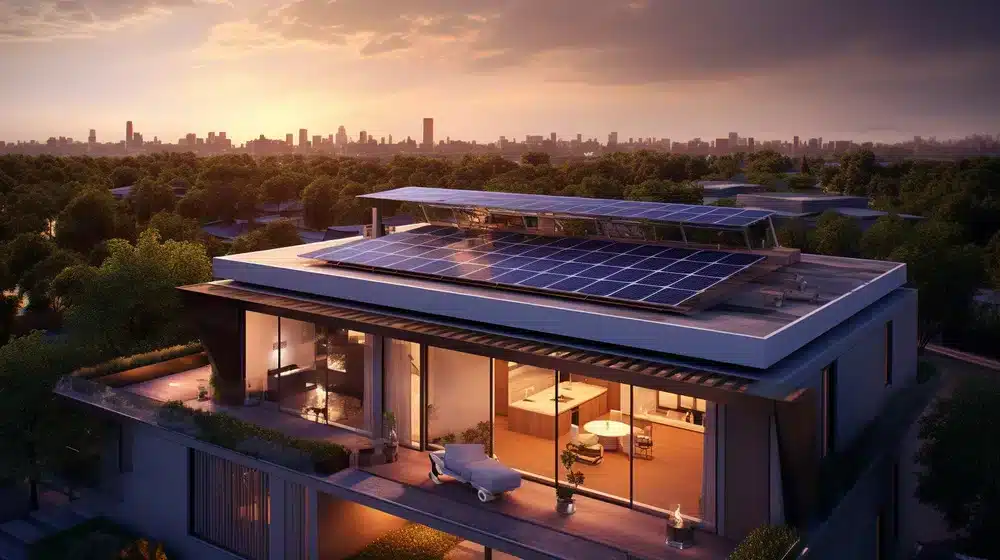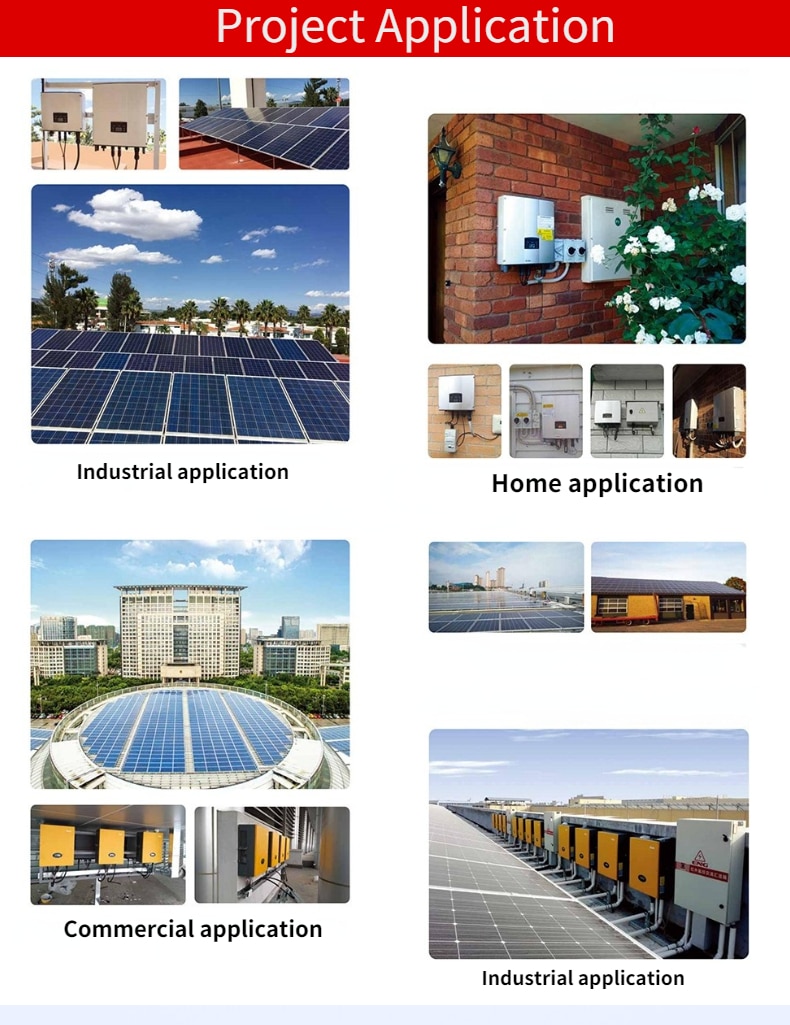
Are you tired of relying on traditional energy sources and constantly worrying about rising electricity bills? It’s time to take control of your energy consumption and embrace the power of the sun. In this article, we will explore the concept of energy independence and how you can achieve it by storing solar power at home.
With the advancements in solar power technology, homeowners now have the opportunity to generate their own electricity and break free from the grid. By installing solar panels on your roof, you can harness the abundant energy from the sun and convert it into usable electricity for your home. But what about when the sun goes down or on cloudy days? That’s where solar power storage solutions come into play. By storing excess solar energy in batteries, you can have a reliable and constant source of electricity, even when the sun isn’t shining. This not only allows you to reduce your reliance on the grid but also provides you with the freedom to use clean and renewable energy whenever you need it. So, get ready to unleash your energy independence and discover the benefits of storing solar power at home.
The Advantages of Home Solar Power Systems
One of the key advantages of home solar power systems is that they can significantly reduce electricity bills. By harnessing the power of the sun, homeowners can generate their own electricity and become less reliant on the grid. This means that they can lower their monthly energy costs and potentially even eliminate them altogether. With solar panels installed on the roof, homeowners can generate clean energy that can be used to power their homes during the day and store any excess energy for use at night or on cloudy days. This not only saves money but also reduces the carbon footprint of the household, making it a win-win situation for both the homeowner and the environment.
Another advantage of home solar power systems is that they provide energy independence. With a solar power system in place, homeowners no longer have to worry about power outages or fluctuations in energy prices. They have a reliable source of electricity that is not subject to the whims of utility companies. This can be particularly beneficial in areas where power outages are common or during emergencies when access to electricity is crucial. Additionally, with the ability to store excess energy, homeowners can have a backup power supply during times when the grid is down. This provides peace of mind and ensures that basic necessities can still be met even in challenging situations. Overall, home solar power systems offer numerous advantages, including reduced electricity bills and increased energy independence.

Types of Solar Power Storage Solutions
Discover the various options available for storing the energy generated by your solar panels right in your own backyard. Whether you want to be completely off the grid or simply want to have a backup power source during blackouts, there are several types of solar power storage solutions to choose from. One option is to use solar batteries, which allow you to store excess energy generated during the day for use at night or during cloudy days. These batteries are typically lithium-ion and can be installed in your home or garage. They are designed to be long-lasting and can provide power for several hours or even days, depending on your energy needs.
Another option for solar power storage is using a solar hot water system. This system uses excess energy generated by your solar panels to heat water, which can then be stored in a tank for later use. This is a great option if you have a high hot water demand in your home and want to reduce your reliance on traditional water heating methods. The stored hot water can be used for showers, laundry, and other household needs.
In addition to these options, there are also solar power storage solutions that involve converting excess energy into hydrogen gas, which can then be used as a fuel source. This is a more advanced and expensive option, but it has the potential to provide long-term storage and can be used for powering vehicles or other equipment.
Overall, there are several types of solar power storage solutions available for homeowners. Whether you choose to use solar batteries, a solar hot water system, or explore more advanced options, storing solar energy at home can help you become more energy independent and reduce your reliance on the grid.
Capturing and Storing Solar Energy
Get ready to harness the sun’s incredible potential by capturing and storing its abundant energy. One of the most common methods of capturing solar energy is through the use of solar panels. These panels are made up of photovoltaic cells that convert sunlight into electricity. When sunlight hits the cells, it knocks electrons loose from their atoms, and this flow of electrons creates an electric current. This current can then be stored in batteries or used to power appliances and devices directly.
Storing solar energy is crucial for ensuring a constant and reliable power supply, especially during times when the sun is not shining. There are various storage solutions available, including batteries and solar thermal storage systems. Batteries, such as lithium-ion batteries, are commonly used to store excess solar energy generated during the day for use at night or on cloudy days. These batteries can be connected to the solar panel system and charged during times of high solar energy production. Solar thermal storage systems, on the other hand, use heat to store energy. They capture the sun’s heat and store it in a liquid or solid medium, such as molten salt or rocks. This stored heat can then be utilized to generate electricity or provide heating and cooling.
Overall, capturing and storing solar energy is a key aspect of achieving energy independence and reducing reliance on traditional power sources. With advancements in technology and the increasing affordability of solar panels and storage solutions, more and more households are embracing solar power as a sustainable and cost-effective energy option. By harnessing the sun’s energy and utilizing efficient storage methods, individuals can not only reduce their carbon footprint but also save on energy costs in the long run.
Maximizing Energy Efficiency in Your Home
Transform your living space into an energy-saving oasis by implementing simple and effective strategies to maximize efficiency. One of the first steps you can take is to ensure that your home is properly insulated. This will help to keep your home warm in the winter and cool in the summer, reducing the need for heating and air conditioning. Additionally, sealing any air leaks in your home, such as around windows and doors, can also help to improve energy efficiency.
Another way to maximize energy efficiency in your home is to upgrade to energy-efficient appliances. Appliances such as refrigerators, washing machines, and dishwashers are now available with energy-saving features that can significantly reduce energy consumption. Additionally, using energy-efficient light bulbs, such as LED or CFL bulbs, can also help to reduce electricity usage. It is also important to remember to turn off lights and appliances when they are not in use, as this can also contribute to energy savings.
By implementing these simple strategies, you can transform your home into an energy-saving oasis. Not only will this help to reduce your carbon footprint, but it can also lead to significant cost savings on your energy bills. So why wait? Start maximizing energy efficiency in your home today and reap the benefits for years to come.
Achieving Energy Independence with Solar Power
Take control of your energy future by harnessing the power of the sun and unlocking the potential for self-sufficiency. Achieving energy independence with solar power is not only environmentally friendly but also economically beneficial. Solar power allows homeowners to generate their own electricity, reducing their reliance on traditional utility companies and potentially saving money on energy bills.
Installing solar panels on your home enables you to capture and convert sunlight into usable electricity. The panels are typically mounted on the roof, where they can receive the maximum amount of sunlight throughout the day. The captured energy is then stored in batteries or fed back into the grid, allowing you to use it whenever needed. With advancements in technology, modern solar panels are more efficient than ever, meaning you can generate more electricity for your home. Additionally, some regions offer incentives and rebates for installing solar panels, further reducing the initial cost and making it a financially viable option for homeowners.
By relying on solar power, you are not only reducing your carbon footprint but also ensuring a reliable and consistent source of energy. Unlike fossil fuels, the sun’s energy is infinite and free. With proper installation and maintenance, solar panels can last for decades, providing you with a sustainable and environmentally friendly source of electricity. Furthermore, during periods of excess energy production, you can even sell the surplus back to the grid, potentially earning credits or money from your utility company. Achieving energy independence with solar power is a practical and forward-thinking solution that not only benefits the individual homeowner but also contributes to a greener and more sustainable future for all.
Frequently Asked Questions
Are there any government incentives or tax credits available for installing solar power storage solutions at home?
Yes, there are government incentives and tax credits available for installing solar power storage solutions at home. These incentives can help reduce the overall cost of the installation and make it more affordable for homeowners.
Can solar power storage solutions be used during power outages?
Yes, solar power storage solutions can be used during power outages. They provide a reliable source of electricity when the grid is down, ensuring continuous power supply for essential appliances and devices.
How long do solar power storage solutions typically last?
Solar power storage solutions typically last for 5 to 15 years. However, their lifespan can vary depending on factors like usage patterns, maintenance, and the quality of the storage system.
Are there any maintenance requirements for home solar power systems and solar power storage solutions?
There are maintenance requirements for home solar power systems and solar power storage solutions. Regular cleaning of solar panels and inspection of batteries and inverters are necessary to ensure their efficiency and longevity.
Conclusion
In conclusion, home solar power systems offer numerous advantages, including lower energy costs, reduced carbon emissions, and increased energy independence. By installing solar panels on your roof, you can harness the power of the sun and convert it into electricity, which can be stored for later use. This not only allows you to take advantage of clean and renewable energy sources, but also provides you with a reliable and sustainable energy solution.
Furthermore, there are various types of solar power storage solutions available, such as batteries and grid-tied systems, which allow you to store excess energy generated during the day and use it during times of high demand or when the sun is not shining. This ensures that you have a constant and uninterrupted power supply, even during blackouts or emergencies. Additionally, by maximizing energy efficiency in your home through the use of energy-saving appliances, insulation, and smart home technology, you can further reduce your reliance on the grid and achieve greater energy independence.
By embracing home solar power systems and implementing effective energy storage solutions, you can take control of your energy consumption and contribute to a more sustainable future. Not only will you be able to save money on your electricity bills, but you will also play a part in reducing greenhouse gas emissions and mitigating climate change. So, why wait? Start exploring the possibilities of solar power and unleash your energy independence today.
